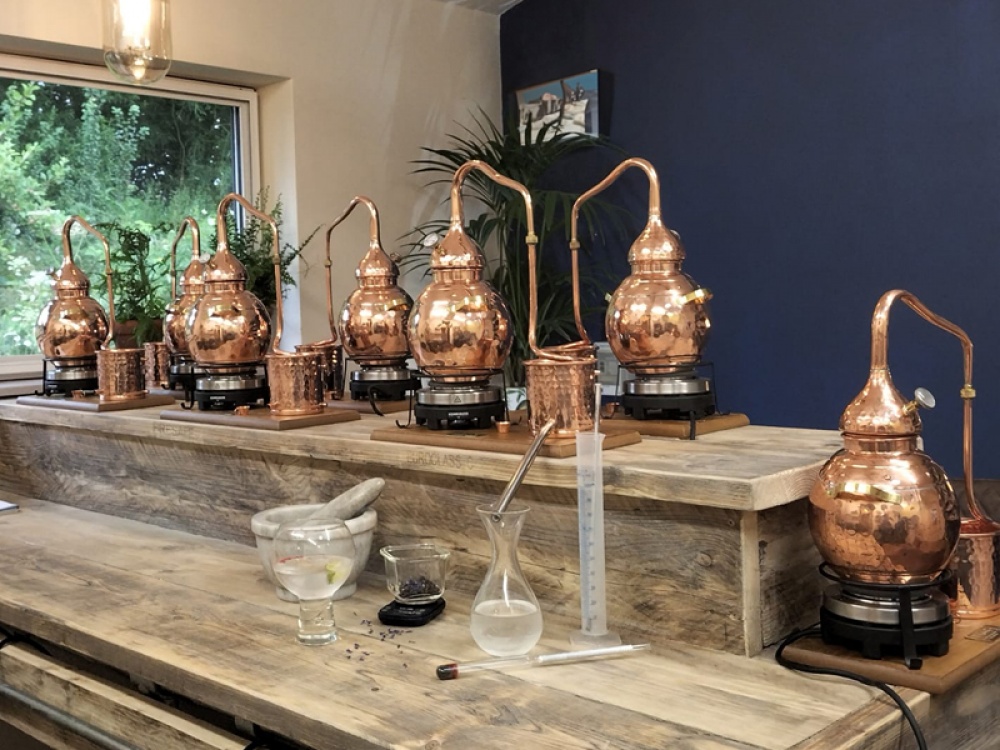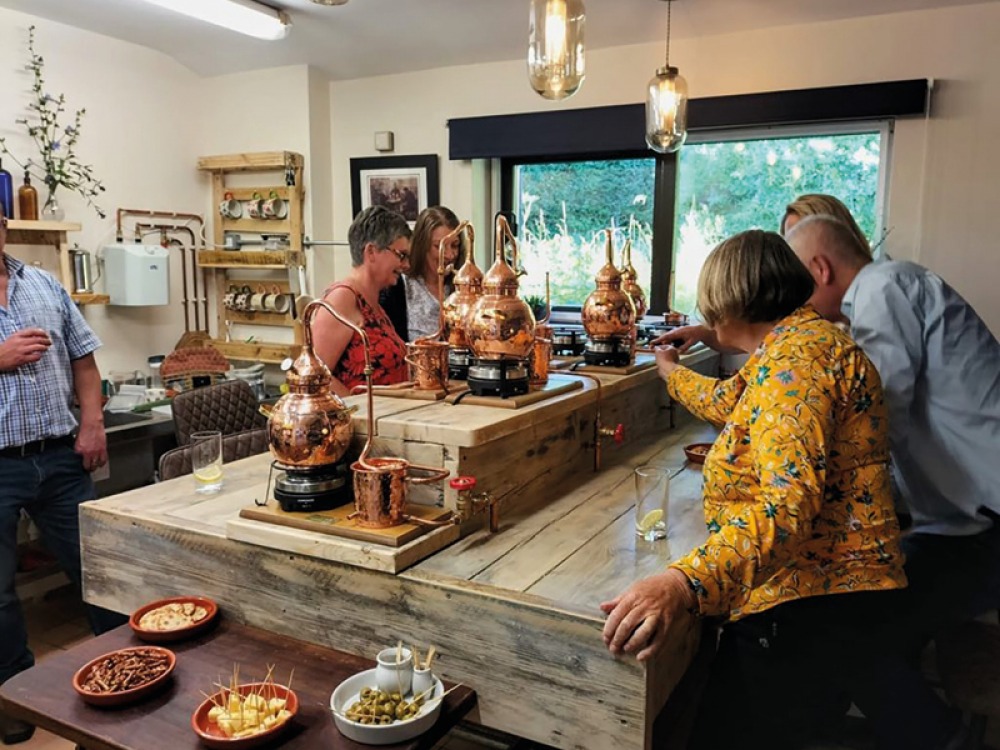Discover Northumberland's Newest Distillery, Border Spirits & Botanicals

Selling their very first bottle of gin at the end of 2024, Joanne and John Taylor are the dynamic duo behind the new Border Spirits & Botanicals, based in Cornhill-on-Tweed. We catch up with Joanne to find out more
Tell us about Border Spirits & Botanicals.
The old village primary school in Cornhill was being converted into little commercial units. I volunteer with the gardeners over there and had a look around. I noticed the school kitchen was vacant and thought because it’s catering grade and its got catering sockets and flooring it would make a perfect distillery. It’s not very big, but the main thing that we were really interested in doing at the time was workshop experiences, so you could come and spend an afternoon with us and make your own gin, choosing your own botanicals.
Do you grow your own botanicals?
Because I help with the gardening there, the parish council have very kindly given us a small area of the garden where we grow quite a lot of the botanicals we use. We’re really trying to keep the food miles down because we can’t see the point in shipping lemons and oranges across the world if we’ve got something in the garden we can grow as an alternative.

Talk us through what you grow.
We’ve got all sorts. We’ve got thyme, bay, camomile and fennel. We’ve also got sweet cicely – it’s been really popular with students because it’s quite sweet but it also has a liquorice flavour. One of the other really popular ones is lemon verbena. I think without fail, whenever we’ve had a workshop, one of the students has used lemon verbena. It smells like sherbert lemon sweets. We have quite a lot of the florals as well like rose, heather and echinacea. Then of course throughout the year whenever something is either flowering or gone to seed, we’re out foraging.
With such a variety at your fingertips, do you experiment with flavours?
We do! We made quite an experimental orchard fruits liqueur towards the end of last year, and everything that was in that we’d managed to pick ourselves. There were elderberries, sloes and apples (we got a glut of apples), so John decided on this fruit liqueur. It was so popular we had to make it two or three times.
How did you go from workshops to distilling your own gin?
Once we’d got the workshops established, people were asking about a Cornhill gin. We had developed our own Cornhill gin recipe last summer and decided we would jump in and buy a larger still. With the workshops you’re using stills that are about one litre in size, so we ordered one which is 40 litres and started selling our own Cornhill gin at the beginning of December.
Apart from the herbs and botanicals, how has the local area inspired you?
Amateur local historian David Heslop wrote about the village and the Borders – it’s been quite a battleground for a lot of years! He wrote this lovely piece for us and you can scan the QR code [on the bottle] and it tells you all about Cornhill. We’re just in the middle of developing a new recipe, and again David is going to be helping us with the story. It’s going to be about the Border wars and the name is going to be Rough Wooing [after the 16th century Anglo-Scottish Eight Years’ War].
What have you got planned for 2025?
Gin tasting evenings for a start, and to increase the garden experience. We’re growing more and more lovely botanicals and herbs that we can use for the series of gins we’re hoping to produce. Coming into spring, part of the workshop experience will be taking people out into the garden so they can have a smell and a taste of the different things that are growing, and they can pick and use whatever they fancy in their gin.










